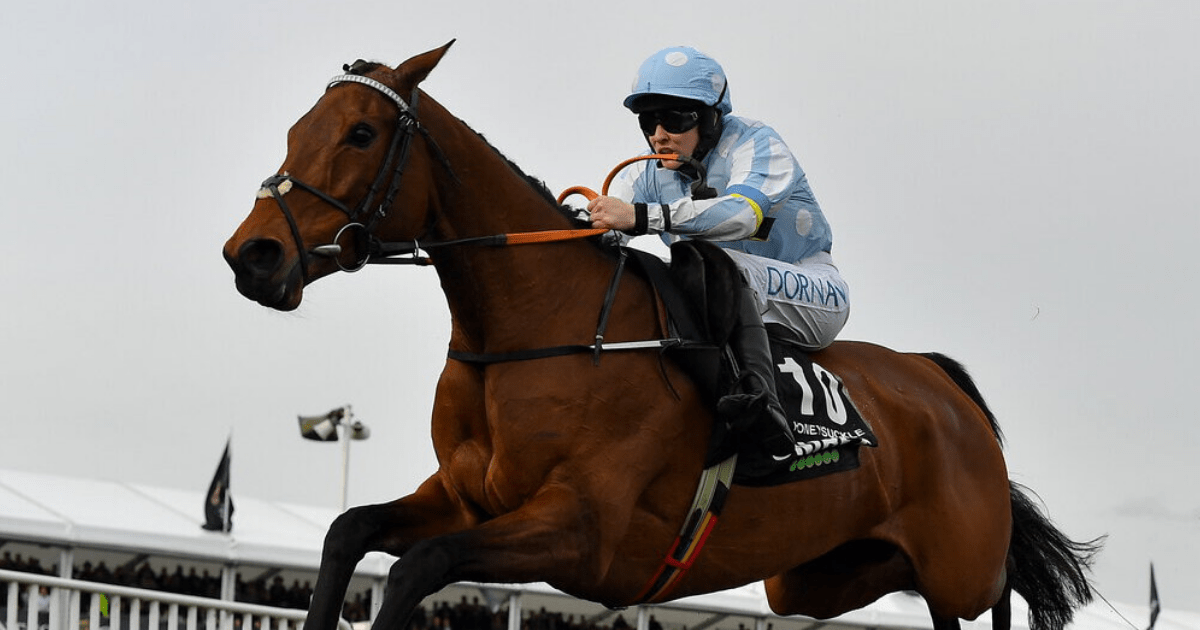Don't Miss the Final Race at Cheltenham Festival
As the Cheltenham Festival nears its end, don't miss out on the National Hunt Chase to wrap up Day 1. While this race won't be live on ITV 1, we've got you covered with all the details on how to watch.
How to Watch the 5.30 National Hunt Cup
ITV 1 is your go-to for this year's Festival, airing the first five races of each day. Racing TV takes over for the final two races, which you can also live stream through online bookmakers with an account. Find Racing TV on Sky channel 426 or stream on their official website.
Cheltenham Race Schedule Breakdown
Each day of the Cheltenham Festival features seven thrilling races, with the highlight race of the day starting at 3.30pm. Here's a breakdown of the race schedule for each day:
Champion Day – Tuesday, March 12

13:30 – Supreme Novices' Hurdle
14:10 – Arkle Challenge Trophy
14:50 – Handicap Steeple Chase
15:30 – Champion Hurdle Challenge Trophy
16:10 – Mares' Hurdle
16:50 – Juvenile Handicap Hurdle (Racing TV)
17:30 – National Hunt Steeple Chase Challenge Cup (Racing TV)
Ladies Day – Wednesday, March 13
13:30 – Novices' Hurdle
14:10 – Novices' Steeple Chase
14:50 – Coral Cup Hurdle
15:30 – Queen Mother Champion Steeple Chase
16:10 – Cross Country Steeple Chase
16:50 – Johnny Henderson Grand Annual Steeple Chase Challenge Cup (Racing TV)
17:30 – Champion Bumper (Racing TV)
St. Patrick's Thursday – Thursday, March 14
13:30 – Turners Novices'
14:10 – Pertemps Network Final
14:50 – Ryanair Steeple Chase
15:30 – Paddy Power Stayers' Hurdle
16:10 – Magners Plate
16:50 – Jack de Bromhead Mares Novices' Hurdle (Racing TV)
17:30 – Fulke Walwyn Kim Muir Challenge Cup (Racing TV)
Gold Cup Day – Friday, March 15
13:30 – Triumph Hurdle
14:10 – County Handicap Hurdle
14:50 – Albert Bartlett Novices' Hurdle
15:30 – Cheltenham Gold Cup
16:10 – Festival Challenge Cup Open Hunters' Steeple Chase
16:50 – Mares' Steeple Chase (Racing TV)
17:30 – Martin Pipe Conditional Jockey's Handicap Hurdle (Racing TV)
Watch Every Race of the Cheltenham Festival
If you're eager to catch all the Cheltenham action, ITV has you covered. With five live races on each day of the festival, ITV1 will broadcast from 1pm to 4.30pm, ensuring you don't miss a moment of the excitement.
Frequently Asked Questions
How important is a horse’s pedigree when it comes to winning races?
While pedigree can be an indicator of potential, it is not the sole determinant of a racehorse’s success. A horse’s lineage may suggest an inherited aptitude for speed or endurance, but training, health, and temperament are also influential factors. Good training can maximize a horse’s natural abilities and even allow it to outperform others with more impressive pedigrees.
What health precautions must be taken when training racehorses?
Meticulous attention to a racehorse’s health is vital in preventing injury and illness. Regular veterinary checks, vaccinations and dental care are important. Monitoring the horse’s signs of fatigue, discomfort or strain is equally important. A well-planned training program that allows for a gradual increase in intensity will help reduce the risk of musculoskeletal injury.
What are the different methods of race training for different horse breeds and types?
Race training methods can indeed vary for different horse breeds, as breed characteristics and racing distances differ. For instance, Thoroughbreds, which are commonly associated with long-distance flat racing, undergo different training compared to Quarter Horses, which specialize in sprinting short distances. To meet the physical and behavioral characteristics of each breed, a customized approach is required.
Can you race a horse on any track?
While initial training can occur on a variety of tracks, specific race training often requires facilities that simulate the conditions the horse will face in competition. This means that you need to have tracks that are of the correct size, with the same kind of surface your horse will be racing. Using the correct track helps condition the horse appropriately and gives them experience with that particular racing environment.
When should a horse begin training for racing?
Although horses can begin basic training at a young age, they usually start more intensive race training and conditioning around the age of two. The horses’ bodies will be mature enough to withstand the strain of racing, while still young and adaptable. The exact timing depends on the horse’s maturity and temperament.
Is it essential for a horse to wear a particular type of shoe when racing?
Racehorses usually wear racing plates which are thinner and lighter than regular horseshoes. These plates minimize weight while providing the necessary traction for the racetrack. A racehorse-trained farrier will fit and select the right shoes for each horse based on its hoof shape and the racing surface.
Statistics
- The majority of racehorses in training are subject to an exercise regimen that includes being ridden six days a week.
- The average cost to train a thoroughbred racehorse for one year can exceed $50,000, accounting for expenses related to training, boarding, and veterinary care.
- Gastrointestinal issues affect up to 90% of racehorses during their training, emphasizing the need for careful dietary management.
- Approximately 70% of a racehorse’s diet consists of forage, with the remainder made up of grains and supplements to meet their high-calorie needs.
- An extensive survey indicated that over 90% of racehorse trainers utilize swimming as a low-impact exercise in their conditioning routines.
- Around 80% of thoroughbred racehorses begin their racing careers by the age of two, according to industry estimates.
External Links
bloodhorse.com
grayson-jockeyclub.org
paulickreport.com
thoroughbred-racing.net
thoroughbredracing.com
jockeyclub.com
How To
How to Monitor Racehorse Health and Maintain It Throughout Training
A racehorse must be checked regularly for health. Implement a daily routine of visual inspections. Pay close attention to a horse’s gait. Schedule regular veterinary examinations, including dental and hoof care. Monitor heart rate and workout data to detect deviations. Promptly address minor health concerns to prevent them from escalating into more serious problems.

